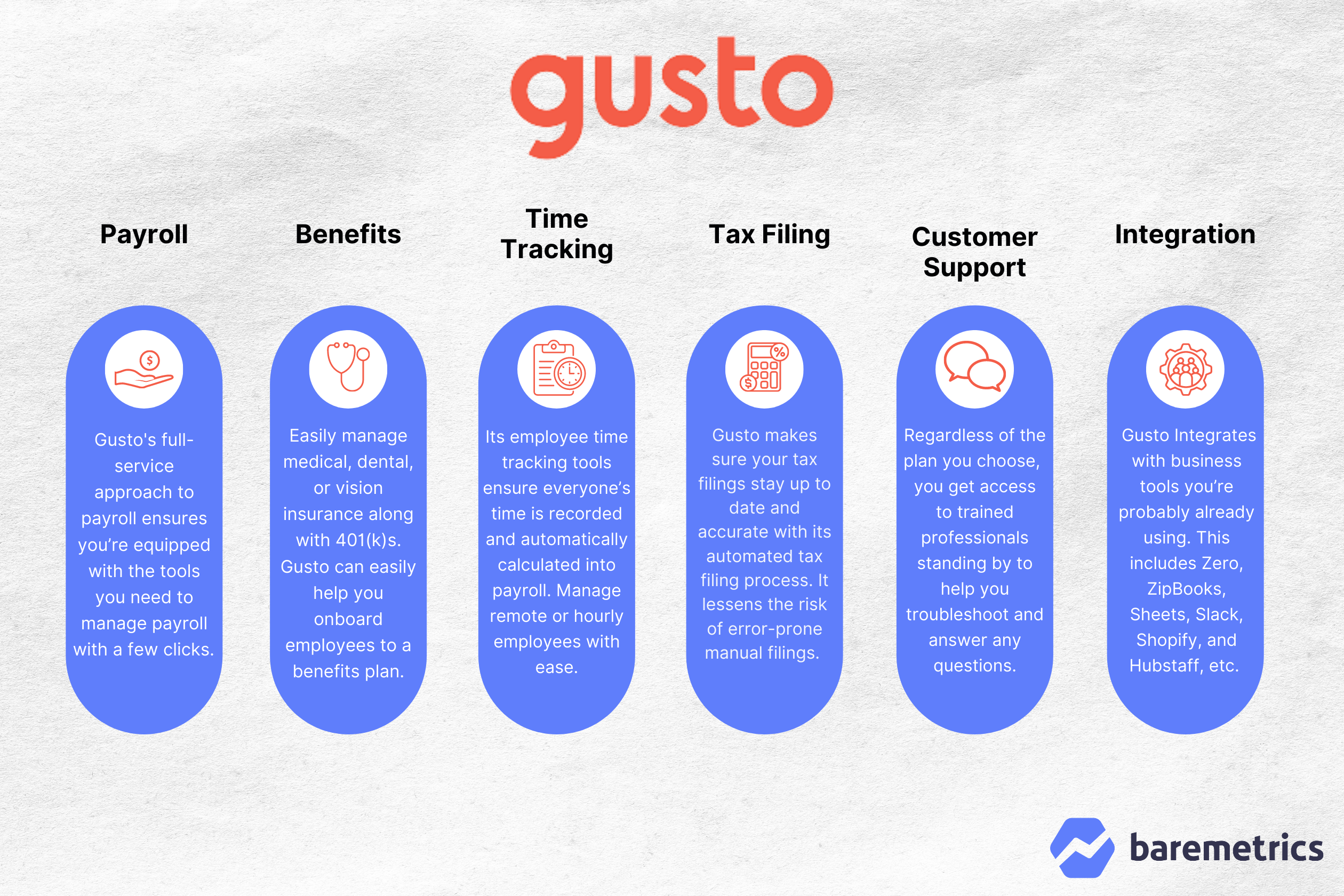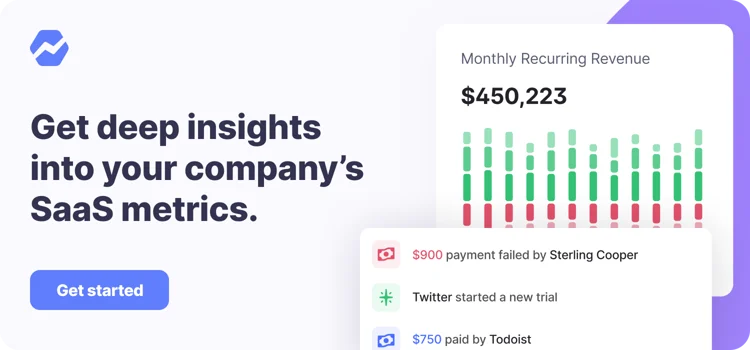Table of Contents
More Founders Journey Articles

Very few people like bookkeeping or accounting, and even fewer can do it well. However, these are the core processes to any successful business, and a failure to keep up with bookkeeping and accounting tasks means trouble—and not just with the tax authorities.
If you lose track of expenses, you’ll be overpaying on taxes, if you even stay in business long enough to reach tax season. Indeed, how can you expect to make the right strategic decisions without understanding simple things such as the cost structure of your business?
Without the basic bookkeeping and accounting tasks completed, and completed well, good luck moving on to the more difficult tasks such as analyzing your unit economics or performing price analysis.
That’s why you need great accounting tools when working on your business. The ideal accounting tool will take the monotony and guesswork out of bookkeeping tasks so you can move on to other more important matters. That’s why we are going to give you a list of all the best accounting tools for small businesses in this article, so you can find the selection of accounting tools that fits your needs, from basic bookkeeping to financial forecasting and more.
Accounting tools and forecasting tools go hand in hand to make sure you have all the GAAP (Generally Accepted Accounting Principles) and SaaS-specific financial metrics at your fingertips needed to make the best strategic decisions for your business.
What are the functions of accounting?
Before we give you a list of the best accounting tools, let’s consider the main functions of accounting. Accounting is the process of recording and reporting the financial information of your company.
It can help you determine simple but important information such as how much money is coming in or what your expenses are. Moreover, it can help you keep control over expenses, forecast your growth strategy, and minimize your tax burden. Here are four specific functions of accounting.
1. Budgets
Budgets are the predefined guidelines of how much your small business can spend safely over a period of time. Although budgets can be flexible and you may end up spending more or less money than allocated in your monthly or yearly budgets, having a rough idea of how much you feel comfortable spending will help prevent you from letting your expenses spiral out of control.
2. Cost allocation analysis
This is a management accounting process used to determine how your small business allocates costs to specific goods or services. This includes the direct costs such as materials and labor as well as the indirect costs such as overhead.
Understanding your cost allocation gives you a better idea of the marginal costs of your goods or services and therefore the price you need to charge to guarantee long-term profitability.
3. Financial Statements
Every period your business will need to generate financial statements. Although the drafting of these financial statements might be compelled by tax or other regulatory authorities, even if this weren’t the case, you’d want to do so because they give you a great understanding of your company.
The three main financial statements are the balance sheet, income statement, and statement of cash flows. These statements tell you about the assets, equity, and liabilities of your small business, the revenue, expenses, and net profit of your small business, and the net cash flow of your business, respectively.
4. Forecasting
Forecasting is not always associated with accounting. It is the process of taking an inventory of your current financial situation, how it has changed over time, the prevailing market conditions, and any other relevant information and then projecting it into the future.
This helps your small business plan future budgets, allocate costs, and perform every other day-to-day function in the business in a profit-maximizing way.
Despite the importance of forecasting as a key accounting task, it is an often-overlooked component of accounting tools for small businesses. That’s where Baremetrics comes in.
Start seeing more into your subscription revenues
Baremetrics provides an easy-to-read dashboard that gives you all the key metrics for your business, including MRR, ARR, LTV, total customers, and more directly in your Baremetrics dashboard.
What are the features you need to consider for accounting tools?
Every small business is different, and the functions they need in their accounting tools are also different. When selecting which accounting tools will best meet the needs of your small business, consider the following five features.
1. Features specific to your needs
If you have no physical products, then investing in software that features inventory management tools might not bring your company much value. Conversely, if your company has employees, then your will want to make sure that you have payroll functionality.
Make sure the collection of software you amass has all your needed features.
2. Ease of use
If the tool is hard to use, unnecessarily complex, or requires a lot of previous bookkeeping knowledge, then, even if it has all the functionality you need, you might find you don’t use it. Especially when starting out, consider a more streamlined set of accounting tools.
Furthermore, consider starting out with software that has a free trial period so you have time to learn how to use the product and whether it will bring your company value before you need to spend money.
3. Accessibility
Having access to your subscription and data on the go is invaluable for the founder of a new business as you can then bring it with you while on the go. Cloud accessibility is a must have for most tech-savvy entrepreneurs.
4. Price
When you are just starting out, you need to work lean, especially when bootstrapping.
Find the product that matches your budget.
Furthermore, consider whether a subscription-based solution might be better than a larger upfront price tag. If you are bringing in revenue yourself through a subscription-based revenue model, then confidence in your improving MRR might mean paying over time is prudent. Keeping costs low when you are a new business is paramount.
5. Scalability
Most entrepreneurs aim to scale their business over time. If you also want to keep growing, then try to find accounting tools that can grow with you. The last thing you want is to have to port all of your data over to a new product every few years—if it’s even possible. That continuity of process will save you time in the long run.
What are the best accounting tools?
There is no best accounting tool—just tools that meet or don’t meet your needs. Indeed, most small businesses will find value in using multiple different tools.
QuickBooks is great for your tax needs, while Gusto Payroll helps with payroll and Expensify can help track your expenses. The following is a short summary of some of the popular accounting software packages available on the market.
QuickBooks Online: QuickBooks is the all-inclusive automated accounting software package for small businesses. It handles bookkeeping, expense tracking, invoicing, sales tax, and other accounting tasks.
FreshBooks: FreshBooks is cloud-based accounting software for invoicing, bookkeeping, and payroll functions.
Wave Accounting: Wave Accounting is a free alternative to the more expensive accounting tools, such as QuickBooks and FreshBooks.
Sage Accounting: Sage Accounting is business and accounting software aimed at small businesses. It can track payments and expenses, set automatic reminders for payments and other important information, generate reports, and track statistics.
ZipBooks: ZipBooks is free online accounting and invoicing software. It helps you streamline accounting tasks as well as gain insight into your business’s operations.
TurboCASH: TurboCASH is an open-source accounting app that caters to small businesses. It also allows you to share data with relevant people in the cloud.
KMyMoney: KMyMoney is a free personal finance manager aimed at small businesses. It has many easy-to-use financial tools and features.
Xero: Xero is free cloud-based accounting software aimed at small and midsize businesses. It also offers an easy way to handle transactions.
FreeAgent: FreeAgent is cloud-based accounting software that makes collaboration between small businesses and their accountants easier.
Gusto Payroll: Gusto Payroll is an online payroll software that caters to HR teams.

This breakdown of Gusto’s core features was collected by Crazy Egg. Learn more in their review.
Expensify: Expensify is a scalable accounting system that meets the needs of a business of any size. It lets you manage your receipts and easily submit business expenses for reimbursement and approval.
Forecast earnings with Baremetrics
The software services above meet many of the main functions of accountancy. With this suite of software, you can make and track budgets, generate financial statements, and stay tax compliant.
However, forecasting is often overlooked. Baremetrics fills this gap by providing 26 metrics about your business, such as MRR, ARR, LTV, total customers, and more.
Baremetrics gives you the information you need to forecast growth. It computes everything from your company’s MRR to monthly churn rate.
Using Baremetrics makes financial forecasting easy for SaaS companies, and you can start a free trial today.



